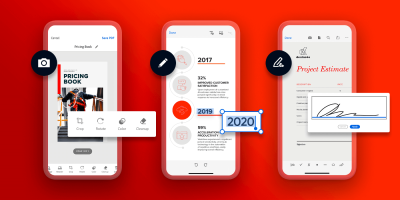When an individual sustains an injury due to the negligence or intentional actions of another party, it gives rise to what is known as a personal injury case. Common misconceptions suggest that such cases inevitably end up in the courtroom. However, not all personal injury cases go to trial. In fact, a significant number of claims are resolved before reaching the litigation stage.
The legal process for personal injury cases typically begins with the filing of a claim. The plaintiff, the person who has suffered the injury, seeks compensation from the defendant, who is allegedly responsible for the injury. Early stages involve negotiation and settlement discussions between the parties involved, often resulting in an agreement that satisfies both sides without the need for a trial.
In instances where a settlement cannot be reached, a personal injury case may advance to court. However, this route is less common as it is usually more costly, time-consuming, and unpredictable. The decision to take a case to trial rests on a variety of factors, including the strength of the evidence, the amount of compensation being sought, and the willingness of the parties to compromise. Most parties prefer to settle out of court to avoid the risks associated with a trial.
Understanding Personal Injury Cases
Personal injury law allows individuals who have sustained injuries due to another’s negligence to pursue compensation. This section explores the fundamental aspects of personal injury law and the common types of claims.
Overview of Personal Injury Law
Personal injury law is designed to provide legal recourse for individuals who have been physically or emotionally injured due to the negligence or wrongful actions of another party. The injured party, represented by a personal injury lawyer, may seek compensation for medical expenses, loss of earnings, pain, and suffering, and other damages. Personal injury cases often hinge on the legal concept of negligence, which requires the injured party to prove that the defendant owed a duty of care, breached that duty, and caused the injury.
| Element | Description |
| Duty of Care | The defendant had a legal obligation to act with reasonable care. |
| Breach | The defendant failed to meet their duty of care. |
| Causation | The defendant’s breach caused the injury. |
| Damages | The injury resulted in quantifiable harm to the plaintiff. |
To ensure a fair evaluation and pursue the appropriate amount of compensation, a personal injury lawyer will typically gather evidence, negotiate with insurance companies, and guide the claimant through the legal process.
Common Types of Personal Injury Claims
Personal injury claims can arise from a wide variety of situations. Below are some of the most common types of claims:
- Vehicle Accidents: Claims often involve injuries sustained in car, motorcycle, or truck accidents and may address issues like speeding, reckless driving, or drunk driving.
- Slips and Falls: In these cases, claimants have been injured due to hazardous conditions on someone’s property, such as wet floors without proper signage or uneven sidewalks.
- Medical Malpractice: These claims occur when a healthcare professional deviates from the standard of care, resulting in harm to a patient.
- Product Liability: Injuries that are due to defective or dangerous products, where manufacturers, distributors, or retailers may be held responsible.
- Workplace Accidents: Employees injured on the job may file claims for hazards that were present due to employer negligence.
A personal injury lawyer plays a critical role in representing injured parties in these claims, helping them navigate the complexities of the law and advocating for their rights to fair compensation.
The Role of a Personal Injury Lawyer in Trials
If a case proceeds to trial, the personal injury lawyer prepares and presents the case before a judge or jury. They gather evidence, subpoena witnesses, and construct a compelling narrative to demonstrate the defendant’s liability and the extent of the plaintiff’s losses.
Factors Affecting the Decision to Go to Trial
Several factors influence whether a personal injury case goes to trial, including:
- Disputed Liability: If fault is contested, a trial may be necessary.
- Extent of Damages: Disagreement on the value of damages can lead to court proceedings.
- Defendant’s Willingness to Settle: Unyielding defendants often necessitate a trial.
- Plaintiff’s Desire for Resolution: Plaintiffs may prefer a faster settlement over a drawn-out trial process.
These considerations, combined with a lawyer’s counsel, ultimately determine the trajectory of a personal injury case.












Comments